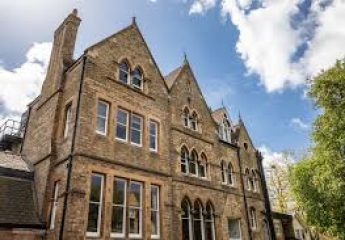Our team currently consists of three post-doctoral researchers, two PhD students, and a number of undergraduate project students.
Post-docs
Dr Eva Viviani

I’m interested in understanding how people learn, represent and process (written) language. In the Language Learning lab, my research focuses on the effects of the linguistic distribution and linear order on generalisation.
Short biography
I started as a Leverhulme Trust Research Fellow in the Division of Psychology and Language Sciences at UCL in February 2020, then I moved with Liz to the University of Oxford — Department of Education — in Septemper 2020. Before this, I completed my PhD in Cognitive Neuroscience at SISSA with Davide Crepaldi. My PhD was about the the development and refinement of visual processing mechanisms originally employed to identify everyday objects, and then adapted to reading words. Aside from that, I’m interested in many things. As an undergraduate in Psychology at University of Parma, Italy, for example, I focused on learning to draw and the mechanisms that support vision-for-action supervised by Nicola Bruno.
I’m a gamer, writer and avid music listener. Dancing and cooking are other passions of mine, not both at the same time though.
Dr Catriona Silvey
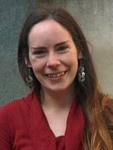
My research focuses on how children learn and generalise the meanings of words, and how the structure of word meanings changes as languages are culturally transmitted and used for communication. I’m also interested in whether these processes of cultural transmission and communication can explain the origins of abstract concepts that may not be easily accessible without language, such as the meanings of relational words, and how the acquisition of these concepts may support higher order thinking. My full website is here.
Short biography
I’m originally from Scotland; I grew up in Perthshire and in Derbyshire, England. I did my undergraduate degree in English at the University of Cambridge. After a Masters at the University of Chicago and a spell working in academic publishing at the Public Library of Science, I moved to Edinburgh for an MSc in Evolution of Language and Cognition and a PhD in Linguistics. I then returned to the University of Chicago as a postdoc in Susan Goldin-Meadow’s lab before coming to UCL as a British Academy Postdoctoral Fellow.
Dr Daniela F Singh
 My work lies at the intersection between learning, memory, and language and investigates key questions for literacy learning and instruction. My focus is on the less explored ability to learn incidentally via implicit learning processes that must operate alongside learning of spelling patterns through explicit teaching. To explore this ability, I designed and carried out learning experiments that focused on the contribution of statistical learning processes to children’s learning of spelling patterns.
My work lies at the intersection between learning, memory, and language and investigates key questions for literacy learning and instruction. My focus is on the less explored ability to learn incidentally via implicit learning processes that must operate alongside learning of spelling patterns through explicit teaching. To explore this ability, I designed and carried out learning experiments that focused on the contribution of statistical learning processes to children’s learning of spelling patterns.
Short biography
I grew up in Transylvania, in a bilingual family (Romanian-Hungarian) and received a BA (Hons) in Business and Languages from Oxford Brookes University (in association with International Business School in Budapest), in 2004. In 2015, after a period of working as a research analyst in an investment company, and then nurturing my two children (ongoing), I received an MSc in Language Sciences from UCL, follwoed by a PhD at the Department of Psychology and Language Sciences, Division of Language and Cognition, supervised by Dr Elizabeth Wonnacott. I am currently a postdoctoral researcher in the Department of Education at the University of Oxford, where, as part of the LiFT project ( Learning for Families through Technology ),I am responsible for leading on the collection, analysis and reporting of a learning app data generated by users.
Alumni
Maša Vujović
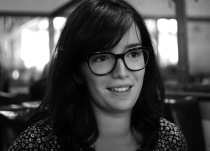 I was an MRes and PhD student 2015-2020, and now work as a Data Scientist at HSBC. My Masa’s masters and PhD work looked at how biases which learners bring to the task of language learning might shape language structure, and whether these biases are different for learners of different age. I combined several approaches to look at this: artificial language learning experiments, silent gesture experiments, and computational modelling. My website can be found here. In my PhD I learned how to break down complex questions into testable hypotheses and use statistics and empirical data to find answers (or more interesting questions). These skills are integral to being a data scientist in the industry.
I was an MRes and PhD student 2015-2020, and now work as a Data Scientist at HSBC. My Masa’s masters and PhD work looked at how biases which learners bring to the task of language learning might shape language structure, and whether these biases are different for learners of different age. I combined several approaches to look at this: artificial language learning experiments, silent gesture experiments, and computational modelling. My website can be found here. In my PhD I learned how to break down complex questions into testable hypotheses and use statistics and empirical data to find answers (or more interesting questions). These skills are integral to being a data scientist in the industry.
Short biography
Before starting my PhD in the Language Learning Lab in 2016, I completed an MRes in Speech, Language and Cognition here at UCL (2016), and an undergraduate degree in Psychology and Linguistics at the University of Edinburgh (2015). I am originally from Montenegro, and I also lived in Slovenia, where I finished high school.
Dr Anna Samara
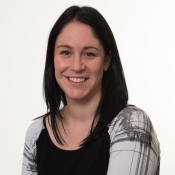
Anna was a postdoc in the lab from 2014-2019. She now works as a lecturer at the University of Greenwich.
Broadly speaking, my research addresses questions about literacy development and impairment. I am particularly interested in typically developing children’s ability to pick up on statistical patterns within and between sound and letter combinations: these patterns are replete in one’s orthography yet they are not always explicitly taught (e.g., “final consonants are more frequently doubled after single vowels than double vowels”; e.g. Jeff vs deaf). Previous and ongoing experiments probe precisely what patterns young spellers can learn and under what circumstances, to shed light on underlying learning mechanisms. I am also interested in literacy impairment. For example, some of my previous work has rigorously investigated the putative statistical learning difficulties of dyslexic adults and whether they underpin their reading and spelling difficulties.
Short biography
I completed my PhD in Psychology in 2014 at Bangor University, UK. In my doctoral research, I introduced an experimental methodology using artificial language stimuli to explore whether statistical learning mechanisms (which have been well-studied in the area of spoken language development) have relevance for spelling development. After my PhD, I was a postdoctoral Research Associate in the Language Learning lab on a number of projects that investigate children’s ability to extract statistical patterns from spoken input. My earlier work (2014-2017) (together with Dr Wonnacott and Dr Kenny Smith at the University of Edinburgh) looked at children’s ability to learn statistically based sociolinguistic cues that condition the use of variation in natural languages (i.e., learning that different speakers, e.g., speakers of a specific dialect, tend to use different linguistic variants). My later work (2017-2019) was on an ERC funded project, awarded to Professor Ben Ambridge (University of Liverpool) that investigated what types of linguistic input discourage children from producing ungrammatical sentences of the type “The funny clown laughed the man”.
Dr Gwen Brekelmans
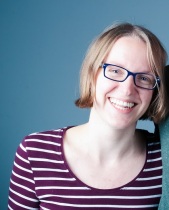
Gwen finished her PhD in the Language Learning Lab in 2020 (see here for a copy of her thesis), and continued to work in the lab as an RA and the Lab Manager after this. She now works as a lecturer at Queen Mary University of London. You can find her website here.
My research focuses on how children learn new sounds of a second or foreign language, and in particular the vowels. What I try to find out is how differences in the training method affect their learning patterns, and how children differ from adults in this.
Short biography
I grew up in the Netherlands, and did an undergraduate degree in English Language and Literature at Radboud University Nijmegen, followed by a research master’s degree in Linguistics focusing on phonetics and second language acquisition at the same university, before I came over to London to do my PhD at UCL.
Jo Saul
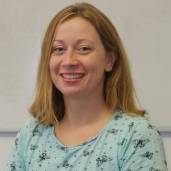
MSc student 2015-2016, now PhD student at UCL with Prof Courtenay Norbury.
Dr Hanyu Dong
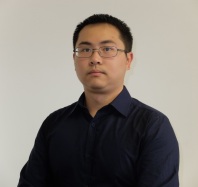
My main research question is how individual differences (e.g. tone perception ability, working memory, attention and musical ability) might affect second language learning of Mandarin lexical tones and words. I also aim to develop a more effective and practical training method for second language learning.
I finished my PhD in the Language Learning Lab in 2020 (see here for a copy of my thesis). I now work as a online content developer at UCL.
Short biography
I was born in China and came to the UK when I was 18. I did my undergraduate in Experimental Psychology at University of Bristol, followed by a Master’s in Language Science at UCL. I carried on as a PhD student at UCL at the Language Learning Lab.
